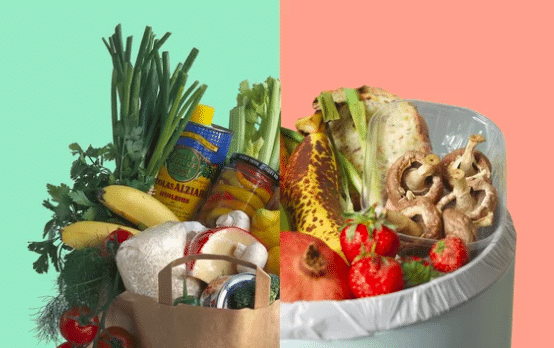Take a moment to consider this staggering figure: Of all the food produced in the entire world, roughly one third is wasted or lost each year, according to the UN’s Food and Agriculture Organization (FAO). That’s approximately 1.3 billion tons of food waste worldwide, and in Europe and North America, that’s an average of up to 250 lbs of wasted food per person each year.
But one European country is doing something to try and combat those numbers.

France’s Fight Against Food Waste
In February of 2016, France became the first nation in the world to ban intentional food waste by grocery stores. Under the new law, produce and other food approaching their expiration dates cannot be thrown away, but must instead be donated to food banks and other approved charities. French supermarkets are also banned from discouraging foragers by intentionally spoiling food that they do dispose of. Grocery stores which break these regulations could face a fine of up to €75,000 (~$88,000), or a prison sentence of up to two years.
The regulations in France have been in place for almost two years now, and results have been mixed. Loopholes in the legislation, as well as lack of proper transportation services for the food, unfortunately means that waste still occurs.

But in spite of these issues, France has managed to cut its food waste down to 1.8% of all the food produced in the country each year, and has vowed to further cut this figure down by half before 2025. A recent study by the Economist Intelligence Unit declared France to be the top rated country in the world for food sustainability, an example that definitely merits following.
Since the introduction of France’s groundbreaking food waste law, other countries have followed with legislation of their own. In August of 2016, Italy passed legislation which offers incentives to farmers, supermarkets, and food producers, essentially relaxing regulations and reducing taxes if they donate unsold or unused food to charity. They have also encouraged sustainability at a cultural and consumer level, by pushing citizens to take home doggy bags from restaurants instead of disposing of their leftovers.

What We Americans Can Do
Food is wasted by grocery stores for a number of reasons, and in developed countries like the US, those reasons often include appearances. According to the UN FAO, over 40% of food loss in developed countries occurs at the retail level, meaning legislation to curtail supermarket waste could potentially feed millions of homeless or needy people every year. It may be some time before we see any kind of food waste legislation in the US, but that doesn’t mean there’s nothing to be done in the meantime.
In the UK this year for the holidays, supermarket chain Aldi has vowed to give away all of its unsold produce to needy families, food pantries, and other charities after its stores close on Christmas Eve – something that could inspire other chains here in the US.

At a consumer level, one way to reduce waste is to buy “ugly” produce. More and more US grocery stores are beginning to introduce a misfits bin in their produce section, where shoppers can buy misshapen or “ugly” fruits and vegetables, often at a reduced price. Similarly, startups like Imperfect Produce offer weekly or biweekly deliveries of perfectly delicious – albeit oddly shaped – fresh food that doesn’t meet the appearance standards of American supermarkets.
The UN FAO study suggests that if just 25% of the food currently wasted worldwide could be saved and redistributed, it could feed over 870 million people. The way we purchase and think about food is heavily influenced by the industry standard, and as a result we tend to favor visually perfect food, which can lead to excessive waste both on the part of the business and the individual. By tweaking our lifestyles just a little bit in the way we buy and consume food, we could help make a serious dent in eliminating food waste.
Cover image: Getty Images.
